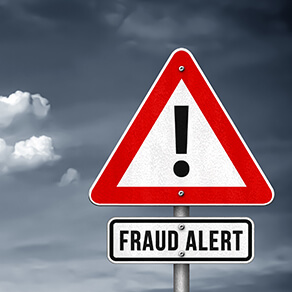
Fraudsters Are Using COVID-19 to Fleece Americans
As governments around the globe mobilize to defend their populations from the novel coronavirus (COVID-19), criminals are also mobilizing — to fleece people. These opportunists have already found ways to use the fear and chaos associated with the pandemic to enrich themselves. But you can protect yourself and your business.
Ripe Opportunity
Phishing emails that promise valuable information about the virus have been circulating for weeks. Fake COVID-19 websites loaded with malware have also popped up everywhere. And as many Americans start working from home, often on vulnerable home networks and devices that lack the latest security updates, hacking incidents are becoming more common.
The federal government’s plan to send checks to Americans to help boost the economy will almost certainly bring scammers out in force. The Federal Trade Commission has already warned that crooks may try to convince people they must pay a fee to receive their checks from the government — which isn’t true.
Best Practices
So how do you protect yourself or your business in these troubled times? Here are a few essentials:
Let phone calls go to voicemail. The best way to fight off phone scammers is to not answer the phone if you don’t recognize the number. But if you do answer, be wary of anyone making promises about, for example, interest-free loans or mortgage payment forbearance. If you need financial help, contact government agencies, charities and financial-service providers directly.
Keep your inbox clean. Along the same lines, exercise caution when opening emails, particularly if you don’t recognize the sender’s name. (Keep in mind, however, that hackers can hijack a friend’s account and send malicious emails to you in that person’s name.) Right now, scammers are likely to use enticing subject lines such as “Cure for COVID-19” or “Make big $$$ working from home.” If you open one of these emails by mistake, don’t click on any links or attachments.
Beware of charity fraud. Charity schemes are a time-tested method for stealing money from generous individuals and companies that just want to help. While you’re encouraged to donate money to organizations fighting COVID-19 and assisting its victims, give only to reputable charities you know. If you aren’t familiar with a nonprofit, ask for its tax ID number and verify it with the IRS. You’re also encouraged to research the organization on watchdog sites such as Charitynavigator.com and Charitywatch.com.
Just Say “NO”
Most Americans are pulling together to fight COVID-19. However, some criminals view the pandemic as an opportunity to profit, so you need to maintain healthy skepticism. If you’re suspicious, hang up, delete or just say “no.”
